Podcast: Play in new window | Download (Duration: 3:30 — 2.5MB) | Embed
Subscribe: Apple Podcasts | Spotify | Amazon Music | Android | Pandora | iHeartRadio | JioSaavn | Podchaser | Gaana | Podcast Index | Email | TuneIn | Deezer | Anghami | RSS | More
 The Seven Attitudes of a Discerning Heart with Kris McGregor
The Seven Attitudes of a Discerning Heart with Kris McGregor
Openness
Openness is the first attitude of a discerning heart. In Catholic discernment, this means learning to listen with trust — to receive God’s word not only with our minds but with the “ear of the heart,” as St. Benedict teaches. In this episode, we explore how openness helps us recognize God’s voice, let go of our own expectations, and enter prayer with faith that His will is always good. Guided by Scripture and the wisdom of the saints, this reflection invites us to begin the journey of the Seven Attitudes of a Discerning Heart.
Scripture Reading:
“The Lord came and stood forth, calling as at other times, ‘Samuel! Samuel!’ And Samuel said, ‘Speak, for your servant is listening.’” (1 Samuel 3:10)
When Samuel first heard God’s voice, he did not recognize it.
He thought it was the priest Eli calling him.
But once Eli guided him, Samuel responded with the words that would shape the rest of his life: “Speak, Lord, for your servant is listening.”
That short prayer shows us the heart of openness.
It is the attitude of one who knows that God is speaking, and who chooses to listen with trust.
Openness does not mean coming to prayer empty of cares.
We are invited to bring our joys, our struggles, our needs, and our gratitude before the Lord.
But in the discerning heart, openness means that after laying these things at His feet, we do not cling to our own answers or expectations.
We trust that His ways are higher than our ways, and that His word may surprise us.
To be open is to make space for God to act in ways we could not have planned.
It is to say, “Lord, I am ready for whatever You desire in this moment.”
This is the attitude of the heart that discerns well.
Saint’s Teaching:
St. Benedict begins the Rule with these words:
“Listen carefully, my son, to the master’s instructions, and attend to them with the ear of your heart.”
The “ear of the heart” listens differently from the ear of the body.
It is tuned not just to sounds, but to the movements of God in silence, in Scripture, and in daily life.
In the discerning heart, openness means cultivating this kind of listening.
Not selective, not distracted, but attentive, willing, and ready to respond with love.
Guided Application Questions:
- Am I truly open to God’s voice, or do I only want Him to confirm my own plans?
Ask the Lord to show you one place where He is inviting you to listen more deeply. - In what part of my life am I clinging to my own expectations instead of trusting God’s desire for me?
Pray: “Jesus, I trust in You. Not my will, but Yours be done.” - How can I begin to listen with the “ear of my heart” each day?
Try setting aside a few minutes of silence today, asking God to speak, then simply rest in His presence.
Closing Prayer:
Heavenly Father, open the ears of my heart to hear Your word.
Grant me the grace to listen as Samuel did, and to answer You with trust.
Through the intercession of St. Benedict, may I grow in the desire to follow You faithfully.
I ask this through Christ our Lord.
Amen
Discover The Seven Attitudes of a Discerning Heart — openness, generosity, courage, interior freedom, prayerful reflection, right priorities, and God as the true end — HERE
© Discerning Hearts. All rights reserved.


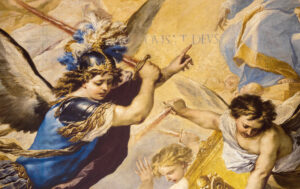
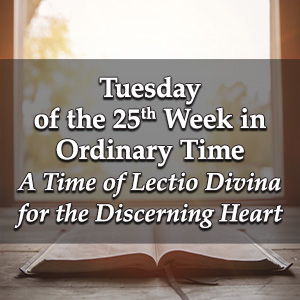 Tuesday of the Twenty-Fifth Week in Ordinary Time – A Time of Lectio Divina for the Discerning Heart Podcast
Tuesday of the Twenty-Fifth Week in Ordinary Time – A Time of Lectio Divina for the Discerning Heart Podcast
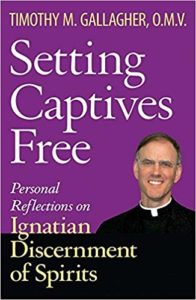
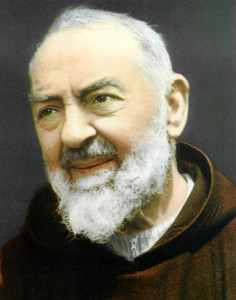
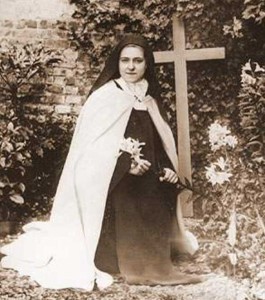
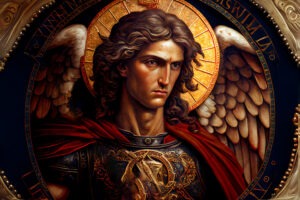
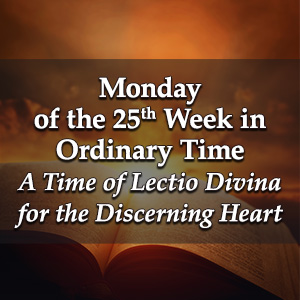 Monday of the Twenty-Fifth Week in Ordinary Time – A Time of Lectio Divina for the Discerning Heart Podcast
Monday of the Twenty-Fifth Week in Ordinary Time – A Time of Lectio Divina for the Discerning Heart Podcast
